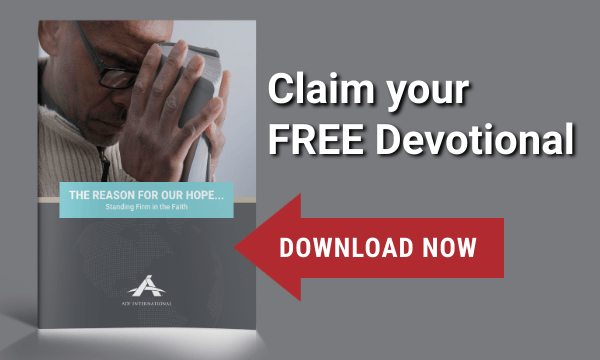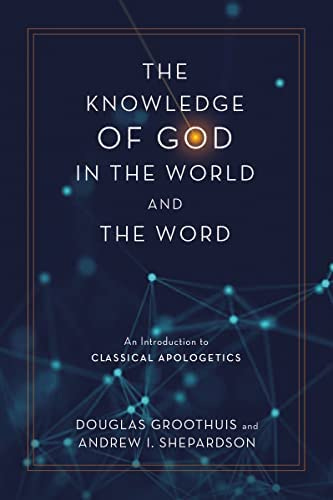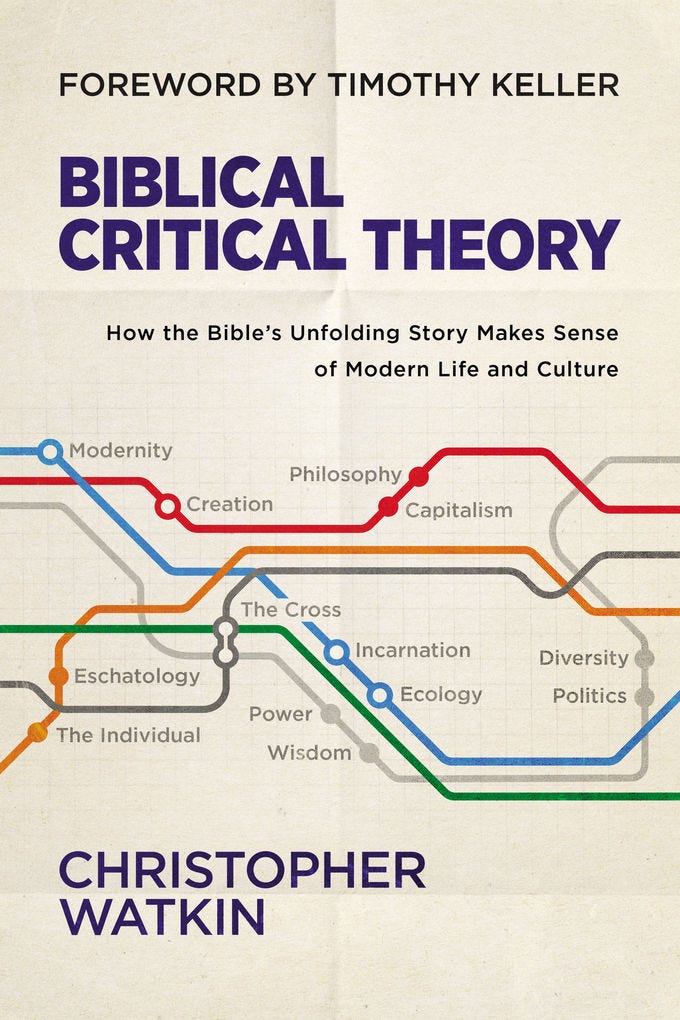The Best Books and Media of the Year, Part 1
By David Baggett and Paul Copan | Bulletin Roundtable
In this roundtable, the team discusses their favorite books and other media of 2022, as well as some of their own upcoming projects. We hope you find in these collections some gems of your own.
Christopher Reese
Editor-in-Chief
David Baggett
The time has come for a recap of 2022 and an update on current or upcoming projects.
A book I am greatly enjoying is an older book, Best Explanations: New Essays on Inference to the Best Explanation, edited by Kevin McCain and Ted Poston. I recently heard prominent atheist Dan Barker in a debate characterize abduction as a “best guess.” He seemed to imply it to be something like an unprincipled stab in the dark. That’s hard to take seriously; a book like this, in contrast, certainly should be.
I would also highly commend my old friend Benjamin Lipscomb’s The Women Are Up to Something: How Elizabeth Anscombe, Philippa Foot, Mary Midgley, and Iris Murdoch Revolutionized Ethics. A simply terrific read; so much could and should be said about it, but another time.
A really great book I want to mention and discuss at a bit more length is one that’s also garnered lots of attention, and for good reason: Carl Trueman’s The Rise and Triumph of the Modern Self: Cultural Amnesia, Expressive Individualism, and the Road to Sexual Revolution. The book is a powerful demonstration of the truism that serious training in the humanities is crucial to be able to understand the nature and import of our cultural moment and to chart a better path forward.
Just this week there will be a discussion of this book in the home of HCU’s president Dr. Robert Sloan, which Marybeth and I are planning to attend. The book is vitally important, and I’d seriously suggest every thoughtful Christian to read it. Plenty would benefit from reading it who aren’t believers as well, but Christians who wish to become better equipped for engaging and understanding our cultural situation are especially urged to give it a serious perusal.
We have not collectively arrived where we have as a culture and society out of whole cloth. Understanding the salient influences, intellectual and otherwise, that have shaped its trajectory over the last several centuries can help us be less surprised by what we see today as well as better able to be part of the conversation. Much of what makes Trueman’s work so prodigiously impressive, as far as I’m concerned, is how he can seamlessly navigate and weave together insights from a variety of disciplines—literature and philosophy, history and psychology, and more besides. In our age of hyper-specialization, I found his treatment refreshing and laudably expansive.
The less aware we are of prevailing assumptions, the bigger an influence they can wield. Even many professing Christian believers, I suspect, are more strongly influenced by reigning plausibility structures and the “social imaginary” of which Charles Taylor speaks than they realize. Certain sacrosanct ideas are part of the air we breathe, and young Christians in particular, whose catechism is often more likely to be Twitter and social media of other sorts than Scripture or the historical creeds, are wont to appropriate attitudes and convictions radically at odds with solid scriptural teaching. Trueman’s book pulls back the veil and exposes what’s behind some of the dominant guiding assumptions in our world today, which can help readers do a better and more informed and intelligent job as they subject them to critical scrutiny.
I will be interacting with more of Trueman’s work in some forthcoming writing projects—speaking of which, here’s a word about current and upcoming projects of my own. In terms of full-length book projects, my former colleague and my pal Ronnie Campbell and I are wrapping up something like an introduction to philosophical theology with Broadman and Holman, written with a moral apologetic twist.
My wife and I are awaiting the third season of Ted Lasso to drop so we can wrap up editing our edited Wiley Blackwell volume called Ted Lasso: No Question Is Into Touch. Working once more with my old chum and colleague, series editor Bill Irwin, was unmitigated fun, and reminded me of our good old days spent at King’s College twenty years back. Of course the privilege and delight of working with the dazzling talent of the inimitable Marybeth Baggett is always one of my deepest joys.
My dear friend Jerry Walls and I continue to make progress on the fourth in our Oxford University Press tetralogy on the moral argument. This is a book that, though coming last, logically fits first—on the topic of moral realism, on which so many moral arguments are predicated. It seems of late more and more naysayers about such realism are emerging from the woodwork, including some professing believers, which strikes me as eminently unfortunate, though not altogether surprising.
Yale’s John Hare and I also continue editing a significant collection on the moral argument with Oxford University Press. We are thrilled with our lineup of contributors:
History of the Moral Argument(s)
Chapter 1: Precursors to Kant (David Horner)
Chapter 2: Immanuel Kant (Kyla Ebels-Duggan)
Chapter 3: From John Henry Newman to Austin Farrer (David Beck)
Chapter 4: C. S. Lewis (Robert Garcia)
Chapter 5: Contemporary Voices (Steve Parrish)
Moral Realism & Its Challengers
Chapter 6: Error Theory (Terence Cuneo)
Chapter 7: Expressivism (David Baggett)
Chapter 8: Constructivism (Christian Miller)
Chapter 9: Debunking Objections (Angus Menuge)
Chapter 10: The Problem of Evil (Paul Copan)
Chapter 11: Moral Realism (John Rist)
Moral Phenomena
Chapter 12: Moral Goodness (Anne Jeffrey)
Chapter 13: Human Value & Personalism (John Crosby)
Chapter 14: Moral Duties & Accountability (Steve Evans)
Chapter 15: Moral Knowledge (Scott Smith)
Chapter 16: Kantian Faith (John Hare)
Theistic Ethics
Chapter 17: Divine Command Theory (Matthew Flannagan)
Chapter 18: Divine Will and Desire Theory (Janine Idziak)
Chapter 19: Divine Motivation Theory (Linda Zagzebski)
Chapter 20: Natural Law Theory (Frank Beckwith)
Secular Ethics
Chapter 21: Platonism (J. P. Moreland)
Chapter 22: Cornell Realism (Daniel Bonevac)
Chapter 23: Substantive Ethical Theory (Mark Linville)
Comparative Religion
Chapter 24: Hinduism (Marie-Hélène Gorisse)
Chapter 25: Judaism (Lenn Goodman)
Chapter 26: Islam (Shabbir Akhtar)
Chapter 27: Christianity (Robert Adams)
In March 2023 the Center for the Foundations of Ethics at HCU is planning a major two-day academic moral argument conference featuring several of these contributors. Think about attending! (The third day will be our annual Apologetics Day held at a local church, and will draw from this list of contributors as well as adding the extraordinary Robert Gagnon.)
William Lane Craig—who’s speaking at both the academic conference and Apologetics Day—and I are under contract with Baker Academic to write a book on the moral argument, in which we aspire to integrate aspects of his approach and mine. Our approaches, different in certain ways, agree much more than they diverge, and so when we co-taught a course on the subject a few years back, we each independently had the idea of a collaborative project. We’re grateful that Baker Academic offered us a contract to do just that.
And last but not least, thanks in no small part to the generosity and help of HCU colleagues Michael Ward and Lou Markos, my wife and I were recently offered a contract to edit a major thirty-chapter Routledge Companion to C. S. Lewis, which will feature an interdisciplinary motif. This approach fits well both with our background (she’s a literature professor and I’m a philosopher) and, more importantly, with Lewis’s own dual training in literature and philosophy. The corpus of his work makes an integrated whole—his philology informed his philosophy, his literary interests added color to his discursive analyses, his storytelling supplemented his apologetics, his biography shaped his vocation, his profligate reading gave him a thousand eyes with which to see. Our book will aim to help readers discover connections between his various roles and personas, forging connections between them and depicting Lewis as the remarkably multi-faceted thinker that he was whose vision of language, literature, reality, the divine, and the human condition was impressively integrated, coherent, and holistic.
— David Baggett is Professor of Philosophy and Director of the Center for the Foundations of Ethics at Houston Christian University. He is the author or editor of about fifteen books, most recently Telling Tales: Intimations of the Sacred in Popular Culture written with Marybeth Baggett.
Paul Copan
I thought I’d do something a bit different: list books I’ve read and endorsed in the last year or so. This includes a book by Paul Gould—my PBA colleague and fellow-Worldview Bulletin contributor. I think that the book endorsements will give you a sufficient idea of what the books address, and you can check them out at the Amazon links included in this list. Note that a couple of these books will be released in 2023.
1. Pickavance, Tim. Knowledge for the Love of God: Why Your Heart Needs Your Mind. Grand Rapids: Eerdmans, 2022.
“I highly recommend Tim Pickavance’s Knowledge for the Love of God! It is an important go-to book that explores the Christian faith as a knowledge tradition, and it is a wise guide for a wide audience on an array of crucial issues related to truth, reason, faith, morality, and knowledge—including personal knowledge of God. The challenges of scientism, postmodernism, moral relativism, and religious pluralism are only apparent and do not at all undermine the stability, integrity, truth, and reasonableness of the Christian faith.”
2. Williams, Peter S. A Universe from Someone. Eugene, OR: Wipf & Stock, 2022.
“Peter Williams has written an excellent introduction and guide to natural theology. I appreciate the practicality of this volume: its array of written and internet resources on arguments for God’s existence; helpful annotated bibliographies on valuable books on natural theology; and the author’s weaving together his personal story into the book to show the relevance of these natural theological arguments. In addition, the author robustly engages contemporary dissenting non-theistic voices with pointed responses of his own. A valuable book!”
3. Gould, Paul. A Good and True Story: Eleven Clues to Understanding Our Universe and Your Place in It. Grand Rapids: Brazos Press, 2022.
“Aristotle said that philosophy begins with a sense of wonder. We human beings are all philosophers; each of us has a philosophy of life. But does my philosophy of life satisfactorily address the wide range of fundamental questions each worldview must answer? Paul Gould shows himself to be a seasoned guide for the reader who is curious to know about the world and its workings, the nature of our humanity as well as one’s own personal identity, the ‘pursuit of happiness,’ and what’s behind it all—the source of purpose and meaning and of ultimate healing for our brokenness. Indeed, there is one story to rule them all, to make the best sense of the way things are and the way things ought to be—for all humans and for me as an individual. The author’s well-crafted book points us to a God of love, who appears in Jesus of Nazareth, to rescue us, to unite us to our Creator, and to restore us to what we were meant to be.”
4. Dickinson, Travis. Wandering Toward God: Finding Faith amid Doubts and Big Questions. Downers Grove, IL: IVP Academic, 2022.
“Travis Dickinson’s Wandering Toward God is a superb guide to dealing with doubt. It is honest, insightful, nuanced, and practical. While many helpful books on the topic of doubt have been written, Dickinson provides us with a unique resource. He brings together a wide array of doubt-related themes and carefully arranges them into a well-crafted book—one that will serve doubters and other strugglers well as they wander and find their way back to God.”
5. Lanier, Mark. Religions on Trial: A Lawyer Examines Buddhism, Hinduism, Islam, and More. Downers Grove, IL: IVP Academic, 2023.
“Mark Lanier's excellent, accessible book has much to commend it! Because Lanier believes that all the treasures of wisdom and knowledge are hidden in Christ, he readily affirms the truth wherever he finds it rather than being dismissive toward any belief held by another religion or worldview. Instead, like Paul in Athens, Lanier builds bridges where he can, connecting personally and sympathetically whenever he finds opportunity. But he wisely but humbly points out shortcomings or difficulties with religions where they prove inadequate in answering basic worldview questions and where they do not meet basic criteria for assessing the truth and coherence required of any belief system. Throughout the book, Lanier effortlessly weaves together his own legal experience, powerful illustrations, and the rational and existential reasons for the Christian faith as he engages the tenets and practices of the world's leading religions.”
6. Rasmussen, Joshua. Who Are You Really? A Philosopher’s Inquiry into the Nature and Origins of Persons. Downers Grove, IL: IVP Academic, 2023.
“As we have come to expect, Josh Rasmussen has written another volume that is clear, carefully reasoned, and illuminating, and it is full of marvelous analogies and accessible illustrations. Rasmussen's account of personhood and its origin and what constitutes personal identity is not only masterful in its logical-structural layout; it is also modest, wise, engaging, and persuasive. A fine work!”
7. Groothuis, Douglas, and Andrew Shepardson. The Knowledge of God in the World and the Word: An Introduction to Classical Apologetics. Grand Rapids: Zondervan, 2023.
“I heartily recommend this valuable volume by Groothuis and Shepardson. Their book serves as an excellent guide about reasons for God's existence and the Christian faith. In addition to clearly laying out these arguments, the authors place them in their proper theological and philosophical context. What's more, the authors include examples from their own academic and ministry experiences, helping bring these arguments into a clearer light and make them more accessible and relevant.”
8. Scarborough, Jeremy. Disney as Doorway to Apologetic Dialogue. Moral Apologetics Press, 2023 (product page not yet available).
“This book is an excellent introduction and guide to the personal background and biblically-shaped vision of Walt Disney and of many of the films he and his company would create. These movies so often depict crucial themes in the biblical metanarrative—the reality of the conflict between good and evil; the need for a champion to step in and overthrow the forces of darkness and reverse the curse; the importance of self-sacrificial love and the value of community; and the good ultimately triumphing over evil. This book serves as a valuable resource to show how Disney films provide not only illuminating insights and inspiration for our children and our congregations; they also serve as bridges for the gospel in a world of people longing to find their true identity and true home and to see fulfilled their deepest desires to ‘live happily ever after,’ which are ultimately fulfilled in Jesus Christ who is, as C. S. Lewis wrote, ‘myth became fact.’”
— Paul Copan is the Pledger Family Chair of Philosophy and Ethics at Palm Beach Atlantic University. Learn more about Paul and his work at paulcopan.com.
Image by Gerd Altmann from Pixabay
[Sponsored posts]
Standing Firm in the Faith
Our Free Gift to You: ADF International’s New Devotional
The Gospel is the greatest news on the planet. The greatest news in all of history. The reality that God sent His Son Jesus to Earth to save humanity from the pain and turmoil of sin and despair—there’s no greater message we could share.
Standing Firm in the Faith is a free 3-session devotional created to inspire, encourage, and exhort you in your walk of faith. You’ll read through 1 Peter 3:15-18 and reflect on how you can stay strong and stand up for the Gospel, even in the most difficult trials.
You’ll also read the stories of real believers in some of the most dangerous areas of the world—stories to strengthen your faith and your witness for Christ.
Click here to download this new devotional for FREE.
The Knowledge of God in the World and the Word
An Introduction to Classical Apologetics
Amid the crisis of authority in our modern and postmodern era, Christians need to be able to point to God's revelation in the natural world in addition to defending God's unique revelation in the Bible and in the person of Jesus Christ.
Classical apologetics takes a two-step approach to commending the Christian picture of reality. First, arguments for the existence of God, such as those of natural theology, are employed to create common ground with people outside the household of the Christian faith and to provide intellectual support for Christians. Second, classical apologetics defends key items of Christian revelation, including the reliability of the Bible, the identity of the historical Jesus, and the resurrection of Jesus Christ from the dead.
In Knowledge of God in the World and the Word, authors Douglas Groothuis and Andrew Shepardson provide a simple introduction to classical apologetics that also addresses the most common objections to natural theology. Readers will discover in the book an easy point of entry into understanding why Christian beliefs about Jesus are true and rational. Further, the authors apply the power of classical apologetics to Christian ministry.
“Astute and accessible, comprehensive and compelling, here’s an outstanding introduction to classical apologetics. You’ll find yourself going back time after time to this invaluable reservoir of insights and wisdom. Read it with a highlighter in hand!”
—Lee Strobel, founding director of the Lee Strobel Center for Evangelism and Applied Apologetics at Colorado Christian University
“Groothuis and Shepardson have written a brilliant defense of classical apologetics. They’ve ably shown, with incredible lucidity, impressive research, and tightly given arguments, that God exists and that Christianity is the true religion founded by God. And they’ve mounted a sophisticated and comprehensive defense of the need, importance, and validity of defending and commending these beliefs to others.”
—Paul M. Gould, associate professor of philosophy of religion, director of the MA in philosophy of religion program, Palm Beach Atlantic University
See our Worldview Bulletin excerpt from The Knowledge of God in the World and the Word here.
Find The Knowledge of God in the World and the Word at Amazon, Zondervan, and other major booksellers.
Biblical Critical Theory
How the Bible's Unfolding Story Makes Sense of Modern Life and Culture
In Biblical Critical Theory, Christopher Watkin shows how the Bible and its unfolding story help us make sense of modern life and culture.
Biblical Critical Theory exposes and evaluates the often-hidden assumptions and concepts that shape late-modern society, examining them through the lens of the biblical story running from Genesis to Revelation, and asking urgent questions like:
How does the Bible's storyline help us understand our society, our culture, and ourselves?
How do specific doctrines help us engage thoughtfully in the philosophical, political, and social questions of our day?
How can we analyze and critique culture and its alternative critical theories through Scripture?
Informed by the biblical-theological structure of Saint Augustine's magisterial work The City of God (and with extensive diagrams and practical tools), Biblical Critical Theory shows how the patterns of the Bible's storyline can provide incisive, fresh, and nuanced ways of intervening in today's debates on everything from science, the arts, and politics to dignity, multiculturalism, and equality. You'll learn the moves to make and the tools to use in analyzing and engaging with all sorts of cultural artifacts and events in a way that is both biblically faithful and culturally relevant.
“A brilliant and unique book . . . It is the most biblical, up-to-date, and comprehensive analysis of contemporary Western culture that I know of.”
—Joshua Chatraw, Center for Public Christianity
“This is a magnificent achievement. It is a must-read . . . Here is a total defense and commendation of Christianity like no other. Buy it. Read it. Ponder it. Pass it on.”
—John Dickson, Jean Kvamme Distinguished Professor of Biblical Evangelism and Distinguished Scholar in Public Christianity, Wheaton College
See our Worldview Bulletin excerpt from Biblical Critical Theory here.
Find Biblical Critical Theory at Amazon, Zondervan, and other major booksellers.
Holidays Subscription Discount!
If you’ve thought about subscribing to The Worldview Bulletin but haven’t yet, now’s the time! Click here to save 25% on a one-year subscription. You’ll receive our monthly newsletter written by our distinguished team of scholars and apologists, gain access to our full archive of articles by leading Christian thinkers, and be equipped, informed, and inspired to defend the Christian worldview! We only offer this discount once per year, so don’t miss this opportunity.
Advertise in The Worldview Bulletin
Do you have a book, course, conference, or product you’d like to promote to 5,570 Worldview Bulletin readers? Click here to learn how. We’re currently booking for January and February.
Support The Worldview Bulletin
Your support makes The Worldview Bulletin possible! We couldn’t do this without the support of you, our readers. We would be grateful for your help in any of the following ways:
Give a gift subscription to a family member or friend who would benefit, or subscribe a group of four or more and save 25%.
Make a one-time or recurring donation.
Become a Patron and receive signed books from our team members.
“The Worldview Bulletin shines a brilliant light of truth in a darkening world. These authors, who are experts in their field, consistently provide logical, rational, moral and most importantly biblical answers, in response to the deceitful narratives we are bombarded with daily. I have found it a great source of enlightenment, comfort, and inspiration.”
— B. Shadbolt, Subscriber, New South Wales, Australia
“The Worldview Bulletin is a must-have resource for everyone who’s committed to spreading and defending the faith. It’s timely, always relevant, frequently eye-opening, and it never fails to encourage, inspire, and equip.”
— Lee Strobel, New York Times bestselling author of more than forty books and founding director of the Lee Strobel Center for Evangelism and Applied Apologetics
“The Worldview Bulletin is a wonderful resource for those desiring to inform themselves in matters of Christian apologetics. Learn key points in succinct articles written by leading scholars and ministers. All for the monthly price of a cup of coffee!”
— Michael Licona, associate professor of theology at Houston Christian University and author of Why Are There Differences in the Gospels? What We Can Learn From Ancient Biography (Oxford University Press)







Prof. David Baggett's on forthcoming work on Moral Arguments seems fascinating. Thank you for sharing and a Merry Christmas and Happy Holidays to the rest of the team.